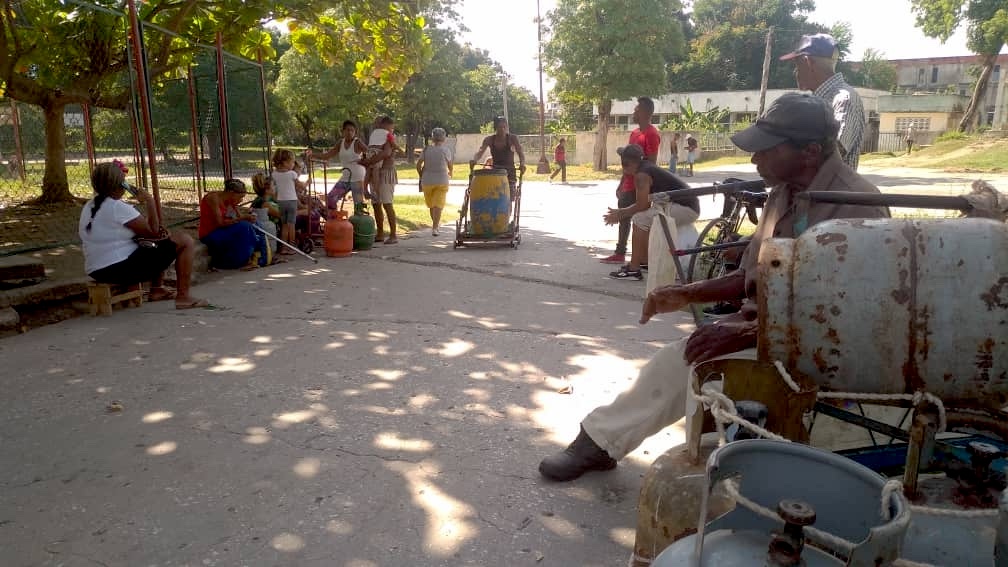Santiago de Cuba residents have to make the most of the few hours of electricity they have. In general, the collapse of the National Electroenergetic System (SEN) keeps the entire island in a state of aggravated anxiety due to the lack of credibility of statements issued by the country's leaders.
For the people of Santiago, it is crucial to make the most of the scheduled "light-ups," which range from four to six hours a day.
"I don't understand why, if Hurricane Rafael passed through the west, electricity goes out all across country," says Abel, a retired English teacher. "When Oscar hit Guantánamo, the SEN didn't fail. Obviously, the system is not well balanced. It is shit. Like everything that remains in Cuba, it's broken. They should just leave us with the sunlight, because every day we use less electricity. "
Electrical instability and endless blackouts have altered daily routines, customs and food. Taking advantage of daylight is a daily goal, a race against the clock to do everything possible while it lasts.
"We went back to scheduled periods of service, which can be less than four hours," says Ana Rosa, a dental assistant. "Since I don't have work at the clinic, due to a lack of material, I sign, run back to the house, and try to soften the peas and make rice while we have electricity. We have to save gas as much as possible, because the SEN is as fragile as a card house, and no one knows when the next gas ship will arrive," she concluded.
Despite officials' recommendations to wait to plug in high-energy-consumption appliances when the electricity is restored, in order not to overload the SEN, the people of Santiago do not comply with these technical instructions.
"If the SEN can't hold up when we connect high-consumption appliances after they turn on the power, let it collapse again," says Karenia, who lives in the José Martí district. "I turn on my air as soon as we have it, to cool the room, because here we have no idea when they're going to cut off the power or turn it back on."
"The system collapses right and left, which is why, when they put the electricity on, we all hurry to get things done. Right now I have a washing machine all ready. When they turn the power on, I'll wash the clothes," she added.
Without any doubt, where the extensive blackouts have had the greatest impact is on the worsening of the country's food supply. The lack of protein is what worries families the most.
"There's no chicken in Santiago de Cuba,” says Katerín, a mother of three. "The MSMEs were the ones that had it, despite the price cap, but they spoiled. Chicken was the cheap meat. Now there's only mincemeat. "
According to this mother and other residents of the province, there is now no pork or lamb because farmers are afraid to slaughter their livestock, out of fear that the meat will rot due to the prolonged blackouts.
The World Health Organization (WHO) defines a healthy diet as a varied one that includes fruits, vegetables, legumes and fish. It also points to meat products as an essential source of nutrients, essential amino acids and B vitamins, which all contribute to the normal functioning of the immune system.
"Right now, if someone has chicken or another meat for sale, it may have spoiled," Katerín warns. "There are a lot of scams. They rot, they refreeze it, and if you don't realize it, it's dangerous. I don't even buy mincemeat anymore. I'm buying mortadella. And, when I have to, rice with Goya seasoning, and whatever I can get my hands on. My kids barely eat any protein," she says.
The lack of canned foods makes it more difficult to add protein to diets.
"The other day I read an article about various ways to preserve meats and fish, but that doesn't work in Cuba," says Katerín. "There's no salt to cure, no charcoal or firewood to smoke, and certainly no vinegar to season. The only way to get protein right now is buy it and eat it on the spot. The Revolution has forced us to become vegetarians."
